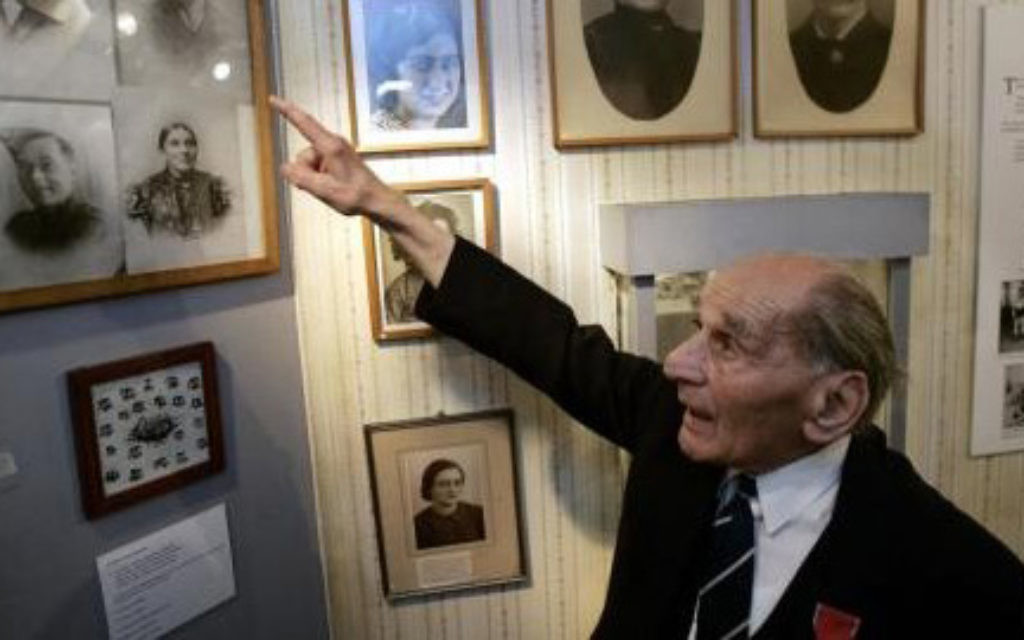Post-Holocaust archives reveal UK government nitpicking

by Jenni Frazer
Hundreds of documents released this week by the National Archives provide a poignant and depressing record of how many people were caught up in a bureaucratic nightmare after the Holocaust, writes Jenni Frazer.
The Foreign Office files chart the progress of applicants to a fund of £1million agreed between Britain and the government of West Germany, with money due to be paid to victims of Nazi persecution.
Get The Jewish News Daily Edition by email and never miss our top stories Free Sign Up
Just 1,015 awards were made under the scheme, which closed on March 31, 1966.
The pathetic paper trail shows case after case of applications – many of which were unsuccessful. One file, that of Aron and Misa Cohen, of Rosh Pinah, Israel, contains an envelope marked “Yellow Star” – the textile symbol which Mr Cohen had submitted as part of his application to prove that he had spent time in Belsen.
The envelope is empty. Foreign Office officials had returned it after agreeing to the Cohens’ application.
Others were not so fortunate. One of the thickest files is that of Auschwitz survivor Leon Greenman, who failed to receive compensation because he had dual British and Dutch nationality. The Dutch had offered Mr Greenman, who died in 2008 aged 97, £500 in compensation for the death of his wife Esther and son Barney, aged three, but Mr Greenman refused it.
Instead, he argued at length with the British government that he should be entitled to compensation under the 1964 Anglo-German Agreement.
Official letters describe him as “an unbalanced man who appears to have only revenge for the death of his wife and child as his purpose for living – or so he says”.
A crestfallen Mr Greenman tried to secure British government support in “bringing to justice two Dutch officials, the retired Swiss consul-general and the German commandant of Westerbork [concentration camp]” but this request was also refused.
File after file shows nitpicking by the British authorities, from arguing whether a particular camp’s conditions were the equivalent of a concentration camp, to questioning whether an Israeli citizen might be exempt from the terms of the agreement by virtue of being “a Palestinian” rather than a British subject.
Just over 4,000 applications were received but there is the distinct sense – as far as the British officials were concerned – of a certain amount of grudging short-temperedness with the applicants.
One woman, Gertrude Kuhnert, who was a Jewish Briton living in Germany and spent time in prison in Berlin and then in Theresienstadt, was profoundly dissatisfied with the £272 she received. When young people were “noise-making and receive the MBE”, she wrote – referring to the awards given in 1964 to the Beatles – it was wrong that survivors such as herself got so little.
Karen Pollock MBE, chief executive of the Holocaust Educational Trust said: “More than 70 years after the end of the Holocaust, we are still learning about this appalling period in history.
“The opening of these important historical archives will help to shed light on the post-Holocaust issues faced by survivors, as well as allowing us to read what was likely to be the first written account many survivors gave of their experiences.
“No doubt they will prove to be essential academic and educational resources. ”

Thank you for helping to make Jewish News the leading source of news and opinion for the UK Jewish community. Today we're asking for your invaluable help to continue putting our community first in everything we do.
For as little as £5 a month you can help sustain the vital work we do in celebrating and standing up for Jewish life in Britain.
Jewish News holds our community together and keeps us connected. Like a synagogue, it’s where people turn to feel part of something bigger. It also proudly shows the rest of Britain the vibrancy and rich culture of modern Jewish life.
You can make a quick and easy one-off or monthly contribution of £5, £10, £20 or any other sum you’re comfortable with.
100% of your donation will help us continue celebrating our community, in all its dynamic diversity...
Engaging
Being a community platform means so much more than producing a newspaper and website. One of our proudest roles is media partnering with our invaluable charities to amplify the outstanding work they do to help us all.
Celebrating
There’s no shortage of oys in the world but Jewish News takes every opportunity to celebrate the joys too, through projects like Night of Heroes, 40 Under 40 and other compelling countdowns that make the community kvell with pride.
Pioneering
In the first collaboration between media outlets from different faiths, Jewish News worked with British Muslim TV and Church Times to produce a list of young activists leading the way on interfaith understanding.
Campaigning
Royal Mail issued a stamp honouring Holocaust hero Sir Nicholas Winton after a Jewish News campaign attracted more than 100,000 backers. Jewish Newsalso produces special editions of the paper highlighting pressing issues including mental health and Holocaust remembrance.
Easy access
In an age when news is readily accessible, Jewish News provides high-quality content free online and offline, removing any financial barriers to connecting people.
Voice of our community to wider society
The Jewish News team regularly appears on TV, radio and on the pages of the national press to comment on stories about the Jewish community. Easy access to the paper on the streets of London also means Jewish News provides an invaluable window into the community for the country at large.
We hope you agree all this is worth preserving.
-
By Laurent Vaughan - Senior Associate (Bishop & Sewell Solicitors)
-
By Laurent Vaughan - Senior Associate (Bishop & Sewell Solicitors)
-
By Laurent Vaughan - Senior Associate (Bishop & Sewell Solicitors)
-
By Laurent Vaughan - Senior Associate (Bishop & Sewell Solicitors)






















